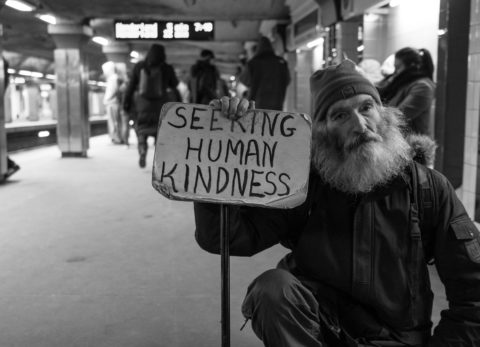Posted on September 2, 2018 by Jenn Zatopek
While waiting for a medical procedure last week, I read a book about a woman who reunited with her family in another country. Her long-lost family were thrilled to connect with her, and as I sat in the doctor’s office, my breath caught between my lungs and I gasped with sadness. I knew this feeling that came over me but wanted desperately to stuff it down: shame.
I have tried to reconnect with my father’s family, but it hasn’t ever gone well. They say they want a relationship and then they do not answer the phone, return emails or text messages when I reach out to them. Their behavior is confusing for me and makes me feel hurt. Previously, several Christians had informed me that I had to work to get my family to like me; I had to chase them down, cajole them into a relationship, work magic to draw them to me. This kind of pressure is sort of like slapping a puppy that’s been hit by a car. Growing up, I worked very hard to stay in my parents good graces, and they left me still.
I believe this is where the prosperity gospel hurts us. Good people believe that good things happen if you just trust God enough and if you do not, then you are somehow responsible for the actions of others not responding to you, having mental health issues, or not getting the things you want. All the power lies in us to change things. How do you make others do what you want them to do? I don’t think there is anyway to change others. As much as I wish that were true, I can tell you that in my own life, people do what makes them happy. I can certainly respond with grace and create conditions for respect, love, and kindness, but if someone does not want a relationship with me, I cannot change that.
If only it were that simple. If only saying a simple set of words or praying a few simple set of Scriptures changed everyone else. It changes me when I say them. There is no guarantee that it would change others.
***
Later that night, I sat in my therapist’s office, in a comfortable burgundy wing-back chair and released the storm of emotions and fears to him. I noticed his huge painting of a New Mexican sunset that hangs on the wall above the soft tawny couch, the lacy window curtains behind him, and the soft black drawings placed across on the other office wall. This man’s office reminded me of a cowboy’s home, which makes sense given that the therapist dresses in full cowboy regalia, complete with a silver pocket watch, colorful vests, tall cowboy boots, and billowing dress shirts.
I feel very safe with this man, which is part of the reason I chose him as my therapist. He understands pain. He lived that way for decades.
After I lamented for awhile, he queried “What do you want?” He asked me to stay with the question as long as I needed, and I let myself sink into it, moving slowly from my head all the way down to my heart, the core of my being.
Frankly, I couldn’t pin down what I wanted at first. I think this might be why sitting with God is so hard because God basically just wants to be with us. And there are no circus of readings, scriptures, prayers, incantations, or things we can perform that will make Him love us anymore. He just wants our presence.
After sitting in the silence for a very uncomfortable time, I realized I wanted to be happy and let go of the pain narrative, which no longer serves me. He led me through a visual meditation, calling me to my highest self, stating truth over me including “Stand as your most authentic self, in the fullness of your being. You are a warrior, Jenn. What do you see?”
With my eyes closed, I saw myself standing tall and looking out across a mountain vista. My head was held up and my eyes were bright and calm and I smiled. There was wind and it was blowing all around me. I was, dare I say it, happy. I was just being. I was not working to fix anyone or make others come to know Christ or force others to seek counseling. I just was me.
Then, the most remarkable thing happened. After we talked about the experience, I returned to apologizing for not doing it right, and he stopped me, and asked “Wait, who are we, Jenn?”
Very much I return to my head whenever this therapist asks me what the truth is. Like a great therapist, he called me to stop messing around with wordplay and asked me to step into deep truth and said emphatically “I do not care what you think. I want to know who we are. Who are we, Jenn?”
Peers, I say, and I begin with, I think all of us–
Stop, he says again, I don’t want your thinking. I want another word for this relationship, and he sends his hands as a flourish between us, to describe our relationship, waging his fingers back and forth between us.
And then it dawns on me.
EQUALS.
I smile as I type this word now. We. Are. All. Equals.
Why is this a big, earth-shattering deal for me? Because I have been walking around for decades believing that you are better than me and I am the rotten trash that lies on the ground. Like Martin Buber penned in his famous book I and Thou, there are a few types of relationships in society, especially the one which reduces us to mere objects, known as the I-It relationship. You see this scenario played out when you visit a cafe or a drugstore or a department store and a furious woman or man is yelling at the store clerk. The clerk is nothing more than lifeless object for the other person to use to get their needs met. This dynamic plays out in countless ways in society, and for me, it defined the type of relationship I endured with my parents growing up.
But there is an ideal relationship, known as the I-Thou whose dynamic is sacred, holy, and imbued with Divinity. The Jews believe the space between individuals in this sort of relationship is filled with The Holy who can help us become our most authentic selves.
Equals. The space between you and me is holy because you and I are both equals, living partners of the Divine spark that flows between us.
That night, I knew irrevocably that I am equal to everyone else on the planet. No matter the title of others, the prestige, status, wealth, family ties, religion, or whatever other barriers that create false divisions among us, I am equal to everyone else.
Our culture tells us that this isn’t so, that what we have or who we know or what we do, somehow, makes us more special, grand, helpful, or beautiful than others. It elevates us as a special “I” status over the lowly “it” of others while leaving out the richness of relationships, of sacred encounters that last briefly and those that can last a lifetime.
What a terrible way to live.
I got up the next morning and prayed a different sort of prayer, one that I gleaned from my therapist, and I’ll leave it with you today:
Dear God, help me today to walk with grace and peace and be my most authentic self, to accept myself just as I am now, and love myself well. Help me to walk in the truth of who You made me to be and rejoice in the gifts You have given me.
The most liberating thing we can do each day is give ourselves back to ourselves. (Unknown)





4 Comments
So well said, Jenn! Thank you for sharing so personally. This one really hit home with me in so many ways
September 3, 2018 at 1:29 pmThanks, Lori! I’m so glad to hear it helped. Here’s hoping you have the day off and are enjoying some rest!!!
September 3, 2018 at 1:43 pmAs always, beautifully said. We are all equals of unimaginable value! Thank you for remembering and reminding!
September 4, 2018 at 12:46 pmThanks, lady! I appreciate your encouragement always! xx
September 4, 2018 at 12:48 pm